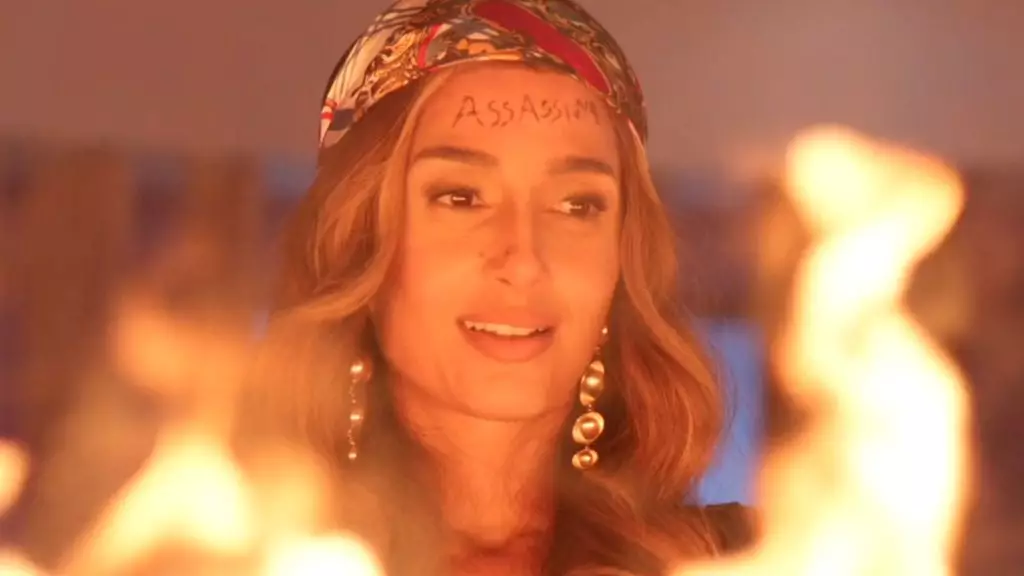As the final curtain falls on Max’s Beleza Fatal (Scars of Beauty), audiences are left grappling with the weight of despair that permeates the series’ conclusion. Spread over 40 tumultuous episodes, the telenovela deftly navigated themes of betrayal, vengeance, and the haunting consequences of one’s actions. However, unlike traditional narratives within this genre, which often wrap up with a neat, happy ending, Beleza Fatal presents a raw and unsettling denouement that shocks and lingers with viewers.
The narrative arc that purportedly revolves around the murder of Benjamin Argentino (Caio Blat) is emblematic of this darkness, as his death sets off a chain reaction among the characters, forcing them to confront their own demons. The intended culprit—Lola (Camila Pitanga)—initially appears to be the prime suspect with her dramatic gesture of denial. Yet, the reveal that Lola, who nearly becomes the embodiment of horror in the final act, holds her own distorted truth raises important questions about guilt and innocence wrapped in personal ideologies.
Characters in Turmoil: The Price of Revenge
Central to Beleza Fatal’s psychological labyrinth is Sofía (Camila Queiroz), whose journey spirals into chaotic vengeance after rejecting her adoptive parents in favor of a quest for retribution. She becomes isolated, a fate that resonates with audiences familiar with the repercussions of abandoning familial bonds for bitterness. The juxtaposition of Sofía’s solitary pursuit of vengeance against the realities that befall her family further emphasizes the show’s exploration of emotional isolation and the futility of revenge.
Elvirinha (Giovanna Antonelli) and Lino (Augusto Madeira) embody the relentless pursuit of healing, yet they are thwarted by Sofía’s self-centered narrative. Their pain becomes palpable as they choose to reject Sofía, demonstrating how personal vendettas fracture relationships and leave scars that may never heal. The pain is palpable in the community as they long for the return of the girl they once knew.
On the opposite end of the spectrum lies Gisela (Julia Stockler) and Carol’s (Manu Morelli) inheritance of the Argento hospital, signifying a new beginning tinged with the shadows of the past. Their lives take a turn for the better, yet the series deftly illustrates that even success does not cleanse the deep, abiding sorrow that lingers from lost relationships and mortality.
The Crescendo of Chaos: Fire and Retribution
As the stakes escalate in the final episodes, the climactic moment unfolds in the burning confines of LolaLand, where the tension reaches a fever pitch. The fire serves as a dual metaphor, representing both the destructive nature of Lola’s obsession and the purifying force of retribution. It is a powerful portrayal of how revenge can consume not only the avenger but also the object of their wrath.
Sofia’s struggle for survival takes a poignant turn when Gabriel (Enzo Romaní) emerges as her savior. The irony that he comes to her aid, despite Sofía’s manipulation of his emotions, speaks to the complexity of human relationships under duress. Yet, in saving her, Gabriel does not truly redeem Sofía; instead, he becomes an unwitting participant in her descent into darkness.
As the police apprehend Lola and the trial unfolds, it becomes evident that the resolution is not as black and white as one might assume. The courtroom scenes bring forth the visceral realities of guilt, as Lola’s accusation resonates as a reflection of how society is often quick to condemn without understanding the full spectrum of human experience.
The Haunting Legacy of Choices
In a confrontation that feels as much psychological as it is physical, Sofía’s confession to the murder of Benjamin frames the entire narrative in a chilling light. The revelatory moment serves as an unsettling reminder that revenge can lead down a sordid path, one often littered with empty victories and questions about authenticity.
Lola’s chilling words, “I am a prisoner here, but you’re my prisoner,” encapsulate the series’ exploration of entrapment—both emotional and physical. The cyclical nature of pain and power becomes hauntingly clear, as Sofía, though victorious in her pursuit, is left questioning the very essence of her happiness. The imagery of Sofía walking away from the prison, haunted by her own choices and the echoes of Lola’s taunts, leaves viewers questioning the morality of her journey.
In Beleza Fatal, power is not simply the triumph over foes but a reflection of internal battles, deeply nuanced and brimming with psychological complexity. This sobering message echoes long after the credits roll, challenging audiences to reflect on the true cost of revenge and whether any victory is worth the personal toll it exacts.


Leave a Reply